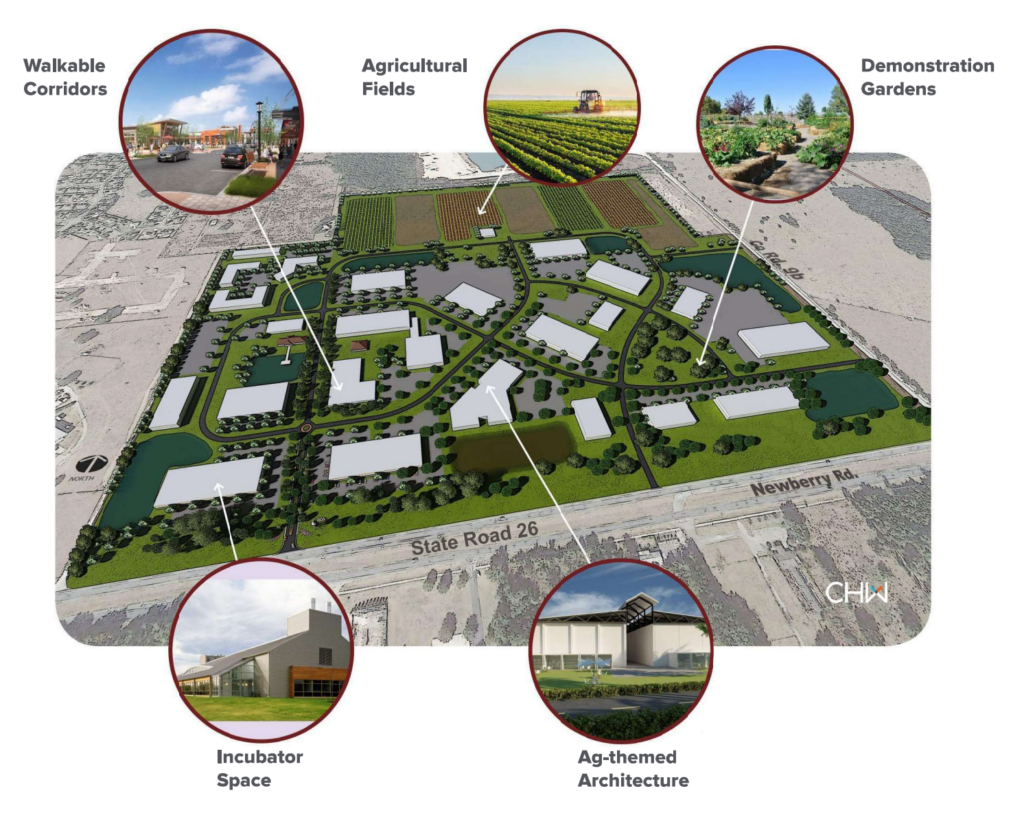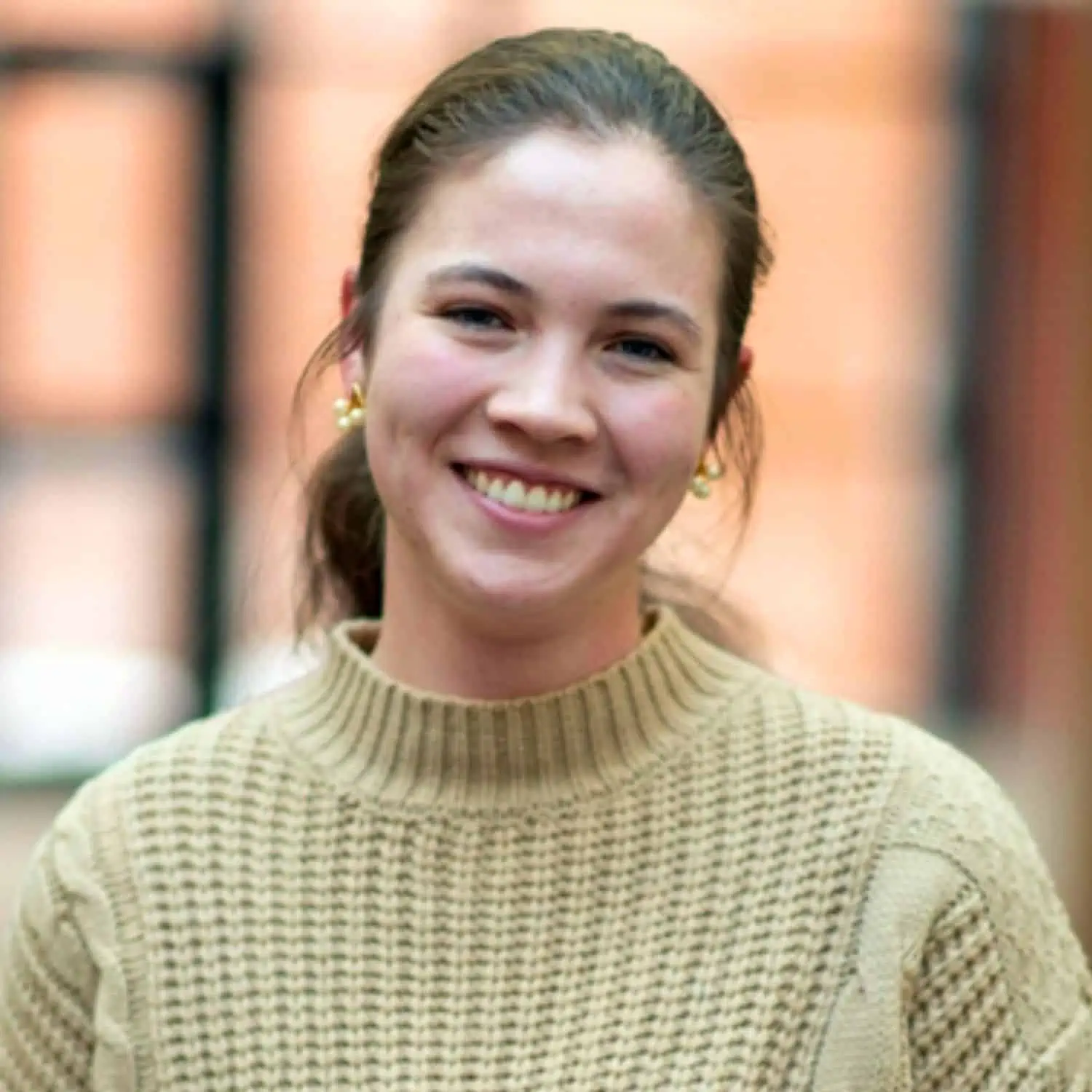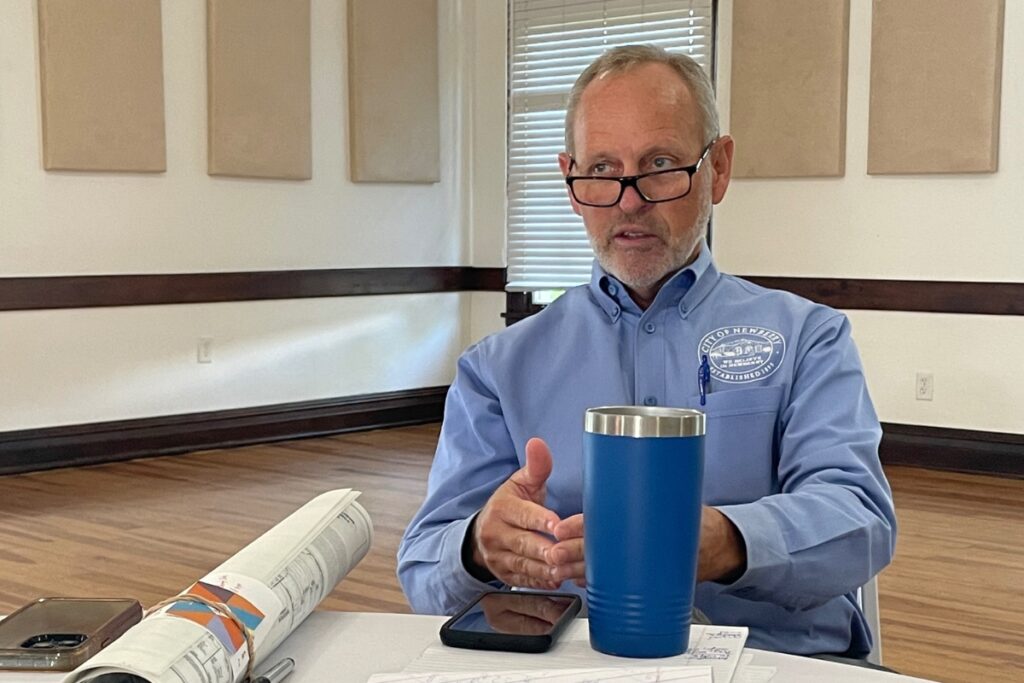
After a feasibility study finished with promising results, the F-300 AgFoodTech Innovation Park in Newberry is ready to proceed, with the help of grants and investors.
Planners expect the park to grow Newberry’s economy, create high-wage and high-skill jobs, develop infrastructure and expand the tax base, all within the context of the town’s agricultural heritage.
“That’s the objective: grow the economy, but you can still maintain your small-town charm, natural environment and rural character,” Kamal Latham, CEO at GBM Global Solutions, LLC, said in an interview.
The project is called F-300 after the roughly 300 specialty crops grown in Florida, according to Latham. The name reflects the park’s goal to be an asset to Florida and beyond, while also benefitting and fitting with the city of Newberry.
For some time, the vision for Newberry’s future was headed toward sports tourism, according to City Manager Mike New. Around the time he came on as city manager in 2014, the town was going through a visioning process to determine what direction the community wanted to go.
The visioning process resulted in a clear desire to lean into agriculture, creating a future for the town that allows today’s children to have a future in the farming legacy of their forefathers.
Alongside the park’s function as an incubator for agricultural technology research, planners expect it to have high educational value. Jonnel Latham, GBM president, said she hopes for the park to include programs where children can meet entrepreneurs and farmers—getting hands-on experiences that ignite passions for agriculture—and for technology.
“That way it gives them ideas, growing up, about how they can contribute to agricultural science as well,” Jonnel Latham said.
The programs would also extend to adults who are interested in farming but do not have a background in agriculture.
Newberry Mayor Jordan Marlowe said he is excited for the project to open opportunities for young people who have a family history in agriculture, but do not feel there are profitable job opportunities for them in that field.
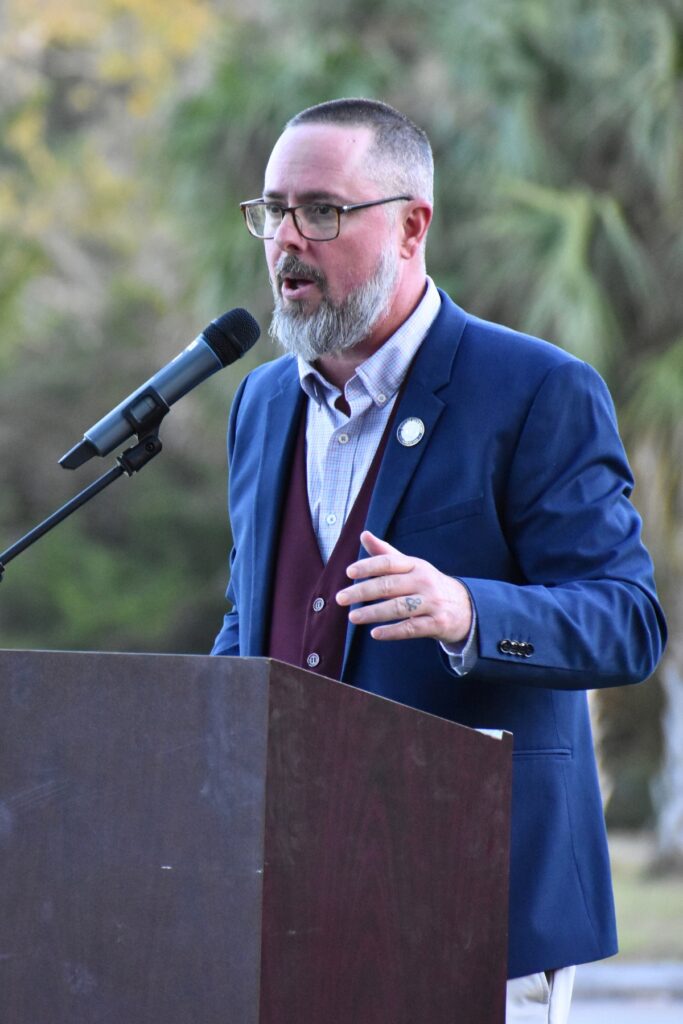
As a high school teacher, Marlowe said he hears that narrative from students often, and wants to “flip the script” in a world where the population is growing faster than agriculture production.
“They need to know that that’s where people are going to be investing the most money, and the most productive, most [entrepreneurial] and enterprising young people out there, and they can get in on the ground floor,” Marlowe said. “They can be ready to enter that market and help be a part of those solutions.”
New said because such agriculture technology parks are not common, there is not a lot of information available to create expectations, but the information that exists points to the creation of about 10 jobs per acre. New said all those jobs would pay significantly more than Newberry’s median income, and with a 170-acre development, 1,700 jobs are expected in the next 30 years.
One of the first moves Newberry made toward the agriculture-oriented goal was in 2021, partnering with Alachua County and the University of Florida Institute of Food and Agricultural Sciences (UF/IFAS) to move the county’s IFAS extension office from Gainesville to Newberry.
The Alachua County IFAS extension office serves as an anchor tenant for what will eventually become the F-300 AgFoodTech Innovation Park.
New said a city can either progress with no plan, or by determining what it wants to preserve and planning for the future.
“The community’s passion for agriculture has been amazing to me,” New said. “Our community said we see a direction that we’re headed, and that’s OK, but it’s not really ‘fits us to the tee,’ and we want to pursue something that fits us to the tee.”
In late 2022, the mayor and a few others, including GBM, met with the senior vice president for agriculture and natural resources at IFAS, Scott Angle. Based on that discussion, the group held an exploratory meeting with over 40 potential stakeholders.
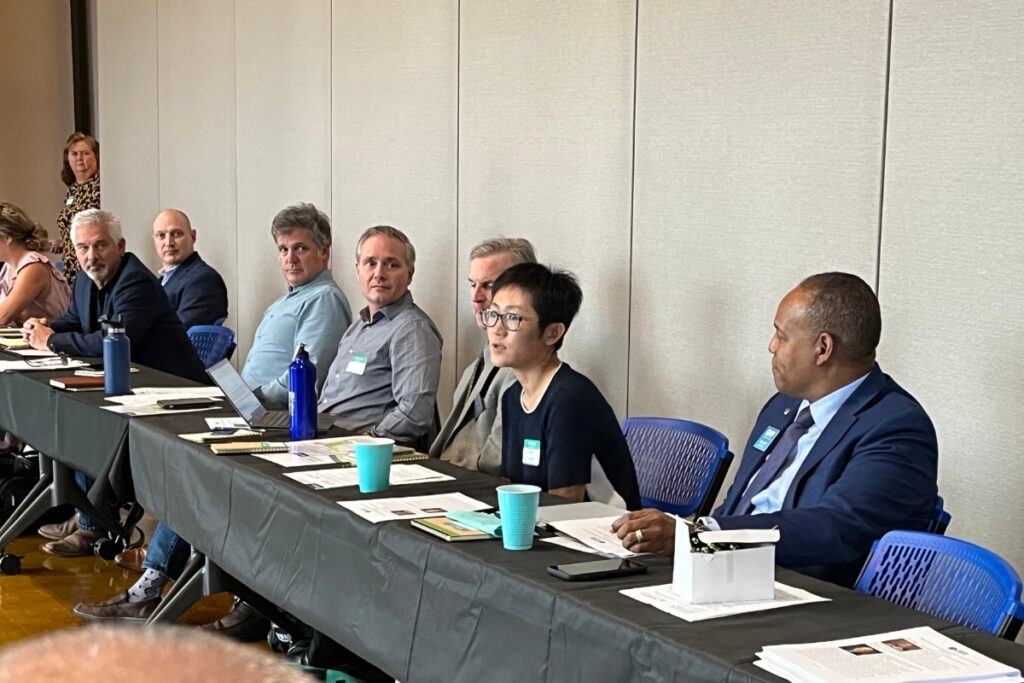
“It was the first time there was a lot of external stakeholders out of Newberry coming together with some local stakeholders to really look at, OK, can we make this happen?” Kamal Latham said. “The consensus was, we believe this is very viable.”
The exploratory meeting led to the formation of a working group that has met for the last year and a half.
On June 10, Latham presented to the Newberry City Commission the results of a feasibility study, which was paid for with a $55,000 grant from the U.S. Department of Agriculture, another $20,000 from Duke Energy, and some matching funds from the city.
Based on 35 interviews and a “deep dive data analysis,” consultants emerged from the study with the results that the incubator is feasible and will bring an opportunity to North Central Florida that is only available in a few other places in the country.
Latham said the feasibility study is integral to the infrastructure grant applications for which planners are now applying from the state and federal governments.
“With agriculture being the second largest industry in the state of Florida, responsible for millions of jobs, billions of dollars of economic impact… That is a great opportunity for the city to leverage its 100-plus years of agricultural heritage and history,” Latham said.
Latham said he also believes the incubator can grow to have a global impact, as it helps to reduce the time, cost and complexity of harvesting, growing, packaging and transporting of food.
“Globally, we are being threatened with overpopulation,” Marlowe said. “We can feed about 9 billion people. We’re rapidly approaching that 9 billion mark. So now is the time to invest in this agriculture research to figure out, how are we going to address these things?”
Marlowe said Newberry has a long history of “stepping in to fill a need” in agriculture, from a screwworm virus vaccine to rice with enough nutritional value to live on. He said looking back, the challenge to those local innovations has been getting them up and running without the support of an incubator.
“We have all of these professors, and all of these researchers, and they have solved all of these problems,” Marlowe said. “But then they put their solution in a notebook, and they put that notebook on the shelf, metaphorically speaking, and then it kind of sits there because they don’t know how to take that solution to a patent, to a company, and then get it on the shelf.”
Though planners expect most of the project to be grant-funded, the city already invested about $2.5-$3 million in moving the IFAS extension office and improving infrastructure to provide for the site, according to New.
“We balance that with trying to keep a very low tax rate,” New said. “But like anything, if you’re not willing to make an investment in your dream, it’s likely not to come true.”
Marlowe said the city’s investment makes the project more attractive to investors, who see that the city already has “skin in the game” to show its commitment.
Land use for the property is already in place, and New said the City Commission has indicated that the city should do something special in developing zoning, to ensure that businesses moving into the park get an expedited review.
“Normally in government, we have a five- and a 10-year plan for projects,” New said. “It doesn’t work that way in this industry. These ideas, they get funded today and they need to be under construction tomorrow.”
There is currently no set timeline for the facility’s construction, as grant applications are still underway.
